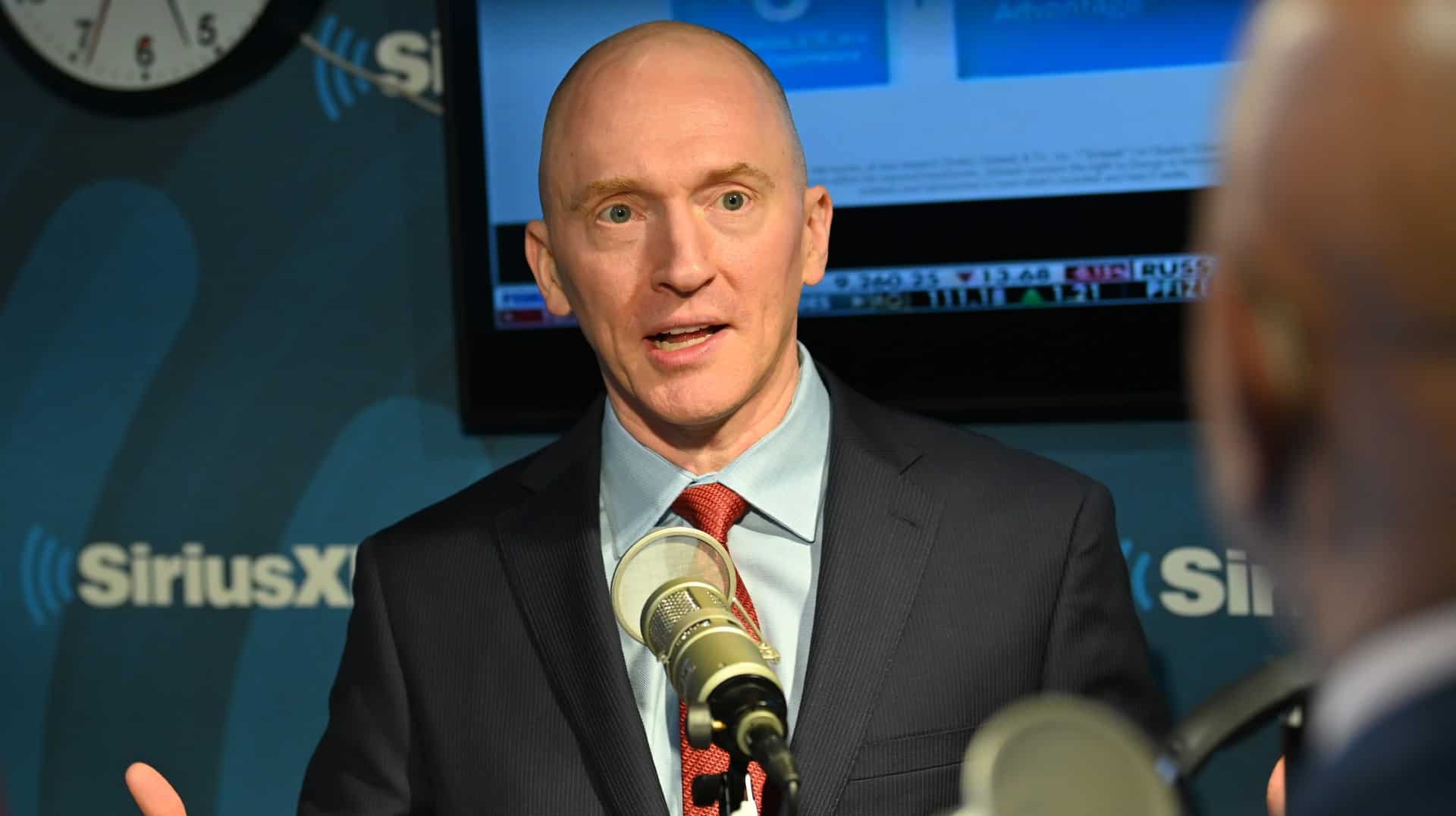OPINION: This article may contain commentary which reflects the author's opinion.
A federal judge has issued a ruling regarding a lawsuit filed against the FBI by Carter Page, who advised then-GOP nominee Donald Trump’s 2016 campaign.
The bureau put Page under surveillance as part of its “Crossfire Hurricane” counterintelligence investigation of Trump which, according to published reports, was launched in response to suspicions that he was working with Russia to undermine U.S. elections. Those allegations proved to be false.
U.S. District Judge Dabney Friedrich, a Trump appointee, dismissed Page’s $75 million lawsuit against the FBI on Thursday, stating that he does not have an “actionable” claim against the bureau or former FBI officials, The Epoch Times reported.
The outlet noted:
Page filed the suit in 2020 against the FBI, the Justice Department, and multiple former FBI officials for damages stemming from what he called the “unlawful spying” against him over the now disproven allegations that the Trump campaign was colluding with Russia.
In the lawsuit, Page accused the federal agencies and ex-officials of violating his constitutional rights and other legal rights by unlawfully surveilling him, noting that the “defendants’ unjustified and illegal actions (including violations of federal criminal law)” had “violated federal statutes enacted to prevent unlawful spying on United States persons, as well as the Constitution.”
Defendants listed in Page’s suit include two former top FBI officials, Director James Comey and Assistant Director Andrew McCabe, both of whom were fired by the Trump administration. In addition, fired top counterintelligence official Peter Strzok and former FBI lawyer Kevin Klinesmith were named in the suit.
In 2020, Clinesmith pleaded guilty to changing an email from the CIA to hide the fact that the agency acknowledged that Page was an asset “who reported on his interactions with Russian intelligence officers.” The email was then used to convince the Foreign Intelligence Surveillance Act court to issue warrants to allow the FBI to spy on Page.
For her part, Friedrich noted the “FBI’s conduct in preparing the FISA warrant applications to electronically surveil Page was deeply troubling” and that the government itself has “conceded that it lacked probable cause for two of the warrants.”
Nevertheless, she ruled that the suit had to be thrown out because Page had “brought no actionable claim against any individual defendant or against the United States.”
“In part, that is because Page faces at least three statutory roadblocks. First, Congress has not created a private right of action against those who prepare false or misleading FISA applications,” she wrote, adding that “both the plain language and the structure of FISA make clear that civil liability under 50 U.S.C. § 1810 attaches only to those who conduct or perform electronic surveillance.”
Secondly, Friedrich wrote that Congress has “not provided for damages claims against federal officers for constitutional violations stemming from unlawful electronic surveillance in the national security context.” Lastly, “Congress has not waived the United States’s sovereign immunity for this kind of claim.”
When the FBI obtained a surveillance warrant for Page, he was listed as a possible Russian agent. But no charges were ever filed against him.
Also, the FBI’s investigation relied in large part on a dossier assembled by a former British spy, Christopher Steele, and was financed by the 2016 presidential campaign of Hillary Clinton and the Democratic National Committee, The Epoch Times reported further.
“A number of the warrants were later declared invalid while officials admitted the spying shouldn’t have been carried out. FBI Director Christopher Wray has since apologized to the Foreign Intelligence Surveillance Court (FISC) for the way it conducted the surveillance of Page,” the outlet added.
In April, former Director of National Intelligence John Ratcliffe pointed a finger at House Intelligence Committee Chairman Adam Schiff (D-Calif.) as well as the entire Perkins Coie law firm, the latter of which could eventually be indicted by special counsel John Durham.
Michael Sussmann, a Clinton campaign lawyer accused of lying to the FBI about a disproven link between the Trump Organization and Kremlin-linked Alfa Bank, was also indicted by Durham, but a D.C. jury found him not guilty earlier this year.
